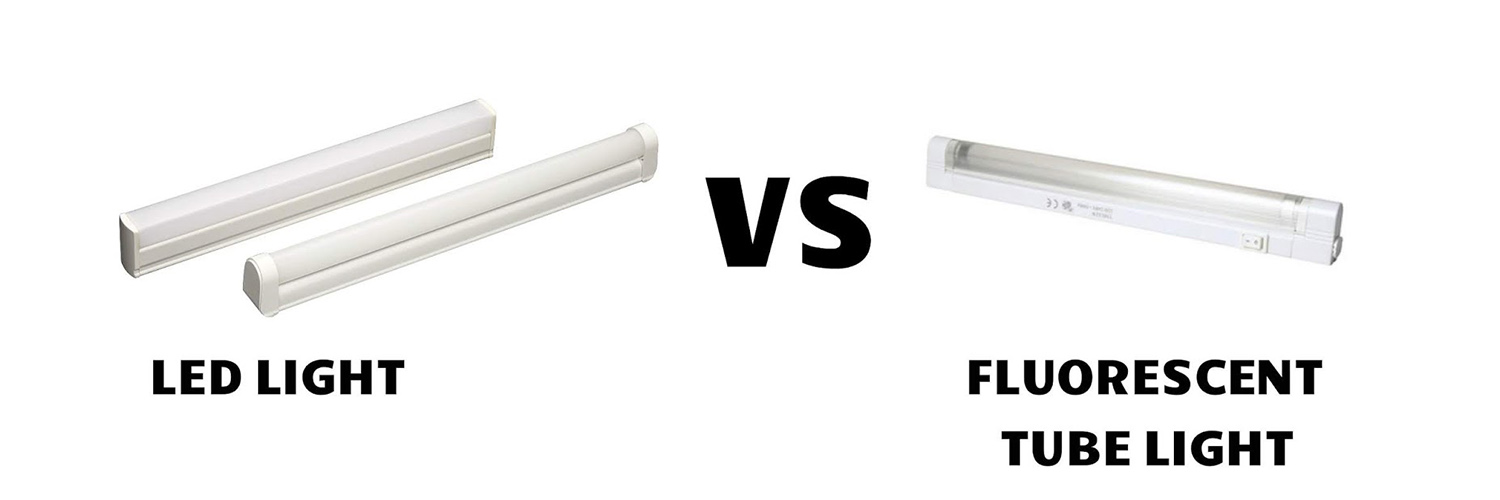Whether it’s the home or
office, you need a budget-friendly lighting solution to save some bucks. At the
same time, you don’t want to compromise on aesthetics. But unfortunately, only
a few people are able to pick the right option which is both visually appealing
and cost-saving.
One big reason is the
lack of knowledge. People are not fully aware of the best tubular lighting
options available today. Not just that, they are also unable to compare the two
broad options, LED and fluorescent lighting.
If you know the factors
that make the best lighting solution, making a sound decision will no longer be
difficult. This article will discuss these elements and provide a detailed
comparison of the two options. Let’s get started:
Material
Fluorescent tube lights
are mostly made from glass, metal, plastic, and mercury. Since mercury is a
hazardous chemical, it can cause a harmful effect if the tube light breaks.
Additionally, the glass material automatically increases the risk of breaking
the tube.
On the flip side, LED
tubes cannot shatter. They come with a durable plastic covering, an aluminium
backbone, and a lens made of polycarbonate. The best part is the absence of
toxic chemicals.
That is why LED tubes are known to be safe for people and the surrounding. But fluorescent tubes are neither 100% safe for human beings nor the environment.
Durability
In terms of durability,
LED tube light wins again. Due to its high-quality material, the lighting
solution lasts longer. However, this is not the case with fluorescent tube
lights, which come with a short life span.
Fluorescent tube lights
begin to flicker after 3 to 5 years. Unfortunately, it causes many adverse
health impacts. Some of them include the following:
-
Headaches
-
Eye strain
-
Photo epilepsy
-
Blurred vision
It means LED tube lights save you from the hassle of changing the lights repeatedly. The durability feature also results in cost and time-saving. You don’t need to purchase the lights often. Once installed, they last longer!
Sustainability
One big reason for the
LED tube light’s fame is its sustainability feature. The light does not have
any harmful chemicals, and recycling is possible. You can dispose of the
electronic component of the light at the nearby e-recycling center. Likewise,
recycling plastic and aluminum is also possible.
But you can’t do the
same with fluorescent tube lights. To dispose of these lights, contact the
organization that deals with hazardous materials. Since these lights contain
mercury, putting them in the recycling station is not possible.
Efficiency
If you are using
fluorescent lights, don’t forget that they are unable to convert the whole
energy into light. A lot of energy gets wasted as it converts into heat. Only
the remaining energy is converted into light.
However, the scenario is
not the same if you use LED tube lights. It converts the whole energy into
light, providing more efficient results. That is why you always find these
lights brighter than conventional tubes.
Furthermore, when there
is no energy waste, it saves costs. The budget-friendly lights cut down
electricity bills and let you save more. Besides this, LED lights come with a
high lumen. It is a term that refers to the total amount of light emitted from
a specific source.
Our Twint Tube Light series is a perfect example of LED tubular lights with high lumen ranging from 2000 to 4000.
Maintenance and
Installation
Another essential factor
to consider when buying lights is their installation and maintenance. Before
LED lights, conventional lights were the only option. And installing these
lights has never been easier. You need a ballast to install the light, which
requires maintenance too. If the ballast stops working, an electrician is
needed to fix it.
Fortunately, today you
have an LED lighting system without installing a ballast. However, when it
comes to maintenance, LEDs are also not maintenance-free. The tube lights look
dirty due to the dust particles. Try cleaning them regularly with a dry cloth
to ensure bright and clear light.
Apart from it, read the
instructions in the manual so that you can take steps accordingly.
Color Vibrancy
The color rendering
index CRI measures the color rendering of light. It compares the light with the
natural sunlight and then gives a score ranging from 0 to 100. In fluorescent
lights, this score is between 60-80. However, it is above 80 in LED lights, meaning
LED lights provide more bright and more natural color.
It is the reason why LED
tube lights are preferred indoors, where natural light is less. With the
presence of these lights, the objects appear bright, clear, and vibrant.
LED Tubular Lights are
the Best Choice
The above comparison
shows how LED lights stand apart from the traditional lighting solution. Though
the initial cost of purchasing LED tube lights is higher, electricity costs are
much lower than fluorescent lights. Not just this, but the maintenance is easy,
and so is their color rendering feature.
After reading the above points, you must have decided to buy LED lights. But make sure to choose the right light for the right space. LED lighting technology offers home, office, indoor, and outdoor lights. To make the most of these lights, choose the light specifically created for a particular space.
The four broad
categories of LED tube lights include:
Type A - which works on
the conventional ballasts
Type B - which has a
driver inside the tube
Type C – which works on
a LED driver
Type A +B – which works
on both existing fluorescent ballast as well as direct wiring
In short, study the four
categories and determine your needs to pick the most suitable LED tube
light.
Factor LED offers a massive collection of LED tube lights and bulbs. View our product categories to see what we have for you!

